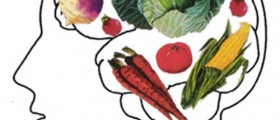
Vegan lifestyle is rapidly gaining popularity all over the world, especially after animal cruelty and animal rights activism has significantly raised the conscience of people about some important issues. For some, veganism is a matter of personal ethics, while for others it is a result of increasing health concerns. Some people use a vegan diet to lose weight, but whatever the reason behind it, the basic principle of this type of diet remains the same.
What is vegan diet?
The basic principle of veganism is that it excludes all foods of animal origin. Unlike vegetarians, who do not eat meat or fish, vegans avoid all animal foods, including dairy, eggs and honey. Vegans do not wear clothes made of animal-based materials, like fur, leather, wool and silk, and they check their cosmetic and other products for ingredients of animal origin.
A vegan diet consists only of plant-based foods. Vegans eat a lot of vegetables and fruits, cereals, nuts, seeds and legumes, and they substitute dairy products with those obtained from soybeans, like soymilk, soy yogurt and ice cream and tofu.
With the increasing popularity of this diet, scientists worldwide are starting to point out some of the health issues associated with veganism. Even though it is believed to be one of the healthiest lifestyle choices, apparently there are certain problems that may arise from it.
Vegan diet problems
It has been noticed that people who follow a strict vegan diet are at risk of certain deficiencies. This especially goes for the vitamin B12. This vitamin is rarely found in plant-based products, and its main sources are foods of animal origin. B12 deficiency can lead to serious health problems, like anemia and neuro-degenerative disorders.
Calcium is another important nutrient which may be lacking in the vegan diet, because its main sources in human consumption are dairy products. Calcium is needed for proper teeth and bone development and its deficiency can lead to fragile bones and loss of teeth.
Vitamin D is another nutrient important for bone density and its deficiency may lead to bone-related problems, like osteoporosis and rickets. Lack of vitamin D is also believed to increase the risk of breast and prostate cancer.
In many countries animal products are used to manufacture iodine, and naturally vegans shun this important nutrient. Iodine deficiency potentially leads to goiter and hypothyroidism, and in pregnant women it can cause low IQ of the newborn, as well as stunted physical growth.
Omega-3 fatty acids are often lacking in people on strict vegan diet. These fatty acids are important for brain function, good heart health and normal development.
Iron is another nutrient that may be deficient in vegans because, even though it is found in plants too, plant-based iron is absorbed much less than the one found in animal products.

















Your thoughts on this
Loading...